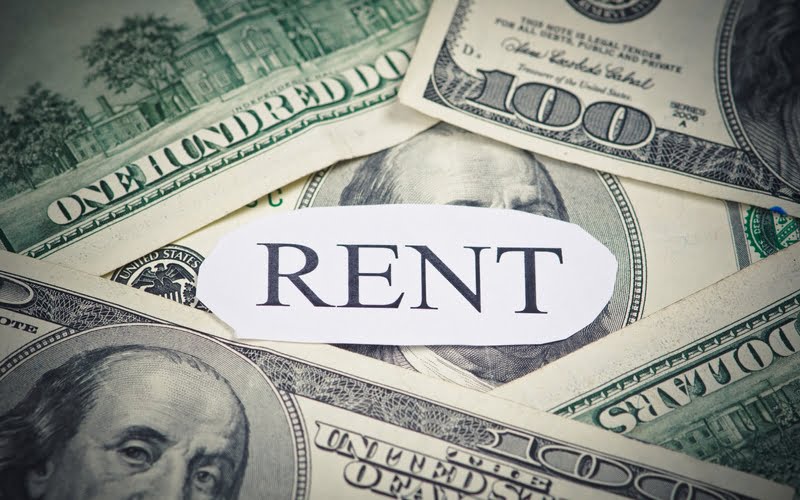Last Updated on March 18, 2024 by Kelvin Nielsen
Renters have many rights under the California Residential Landlord and Tenant Law. However, not paying isn’t one of them!
A tenant has a duty to pay rent on time, every time as per the terms of the lease agreement. And if they stop paying rent without a legally justified reason, you may be able to exercise certain rights under state law.
Speaking of rights… Here is what you can do when your tenant is not paying rent in California.
What Rights Do Landlords Have When Tenant is Not Paying Rent in California?
California law (CA Civil Code 1940-1954.06) gives landlords certain rights when a tenant isn’t paying rent. The following are some of the legal actions you can take against the tenant.
#1: A right to terminate the tenancy.
A tenant must pay rent by the due date, which is typically the first day of the month. In California, renters don’t have a right to a grace period. However, most landlords typically provide their tenants with a grace period of 3 days.
If the tenant fails to pay the rent by the due date, you may be able to terminate their tenancy by serving them a 3-Day Notice to Pay or Quit. This eviction notice will give the tenant up to 3 days to clear their rent balance.
If the rent remains unpaid after the 3 days, you may be able to file for their eviction in court.
#2: Right to file an eviction lawsuit in a Superior Court.
If the notice period ends and the tenant hasn’t paid the rent balance nor moved out, you can file a complaint in a Superior Court.
Generally speaking, expect the filing to cost you anywhere between $240 and $435. The following is the information you must include in the complaint.
- You and your tenant’s name and address.
- The rental property’s address.
- The amount of rent the tenant owes you.
- The date when rent becomes due.
- The date when you sent the eviction notice.
- A statement that the tenant is yet to make any payment even after sending them the eviction notice.
You may also want to include a copy of the lease agreement, eviction notice, and the late rent notice.
You must file the complaint in the Superior Court of the county where the property is located in. After successful filing, the court will issue you with a copy of the summons. The Summons will need to be served on the tenant.
The following is a guide to the California eviction process for non-payment of rent.
#3: Right to deduct unpaid rent from the security deposit.
You can, however, exercise this right only if the tenant has moved out of the unit. Under California security deposit rules, you have up to 21 days to return the deposit, or whatever portion remains, to the tenant after they have moved.
And aside from unpaid rent, you can also make deductions for things like unpaid utility bills and for damage exceeding normal wear and tear.
#4: Right to sue the tenant for unpaid rent.
Sometimes the security deposit may not be enough to cover the unpaid rent. In such a case, you may consider suing the tenant for the remaining balance. You can do so in a small claims court.
How Long Can a Tenant Stay without Paying Rent in California?
Rent is normally due on the first day of the month. Most landlords also provide tenants with a grace period after the rent due date, which is typically between 3 and 5 days.
During this time, you must not make any attempts to evict the tenant from the premises.
After the grace period is over, you may be able to terminate the lease by serving the tenant with a 3-Day Notice to Pay. This will give the tenant an extra 3 days to stay on the property.
After the 3 days are over, you can move to a Superior Court and file for their removal. (Cal. Civ. Proc. Code § 1161(2) (2023).)
What Happens if a Tenant Doesn’t Pay Rent in California?
If the tenant doesn’t pay rent within the required timeframe, you must serve them an eviction notice. Specifically, you must serve the tenant with a 3-Day Notice to Pay or Quit.
The notice must be in writing and served on the tenant appropriately. Landlords have three options when it comes to serving a tenant with an eviction notice in California. You can do it in person, hand the notice to a person of a suitable age AND mail another copy to the tenant via certified or registered mail, or post the notice in a conspicuous area AND mail another copy to the tenant via certified or registered mail.
Can a Landlord Evict a Tenant without Going to Court in California?
No. The only way a landlord can evict a tenant in California is by going to court and obtaining a court order.
Under California law, renters enjoy certain rights during eviction. Among other things, it’s illegal for a landlord to try to evict a tenant by changing locks, shutting off utilities, or removing the tenant’s personal belongings from the unit.
What are the Legal Reasons to not Pay Rent in California?
Renters in California may have a legal right to not pay rent in the following two circumstances. That is:
#1: If you have failed to make the requested repairs.
Among the responsibilities landlords have in California is providing tenants with a livable space. The unit must be habitable and contain the following things, among others:
- Hot and cold running water.
- Heating (it must meet the CA residential heating requirements).
- Working smoke and carbon monoxide detectors.
- Working light fixtures, including light bulbs.
- Working plumbing fixtures (here is a guide to tenant rights to plumbing problems in California).
You must respond to maintenance requests on issues affecting the tenant’s habitability within 30 days. If you don’t, the unit would be considered uninhabitable and the tenant may be able to exercise certain rights. You can read more about uninhabitable conditions in California here.
Among the rights the tenant may be able to exercise include withholding rent payments and breaking the lease without penalty.
#2: If the landlord has violated the lease agreement or the law.
As a landlord, you have a duty to abide by the terms of the lease agreement, as well as the applicable state laws. As such, if you engage in certain illegal actions, the tenant may be able to exercise certain rights including withholding further rent payments.
An example of an illegal action that can give the renter a right to withhold rent payments is harassment. Harassment can take many forms, including threats to eviction, sexual harassment, threats of violence, or repeatedly failing to notify the tenant before entry.
Conclusion
There you have it. All options you have when a tenant is not paying rent in California. Remember, though, California law does give tenants certain rights as well, such as the right to withhold rent under certain situations.
Disclosure: The content herein isn’t a substitute for advice from a professional attorney. It’s only meant to serve educational purposes. If you have a specific question, kindly seek expert attorney services.
Sources: California Warranty of Habitability, California Landlord & Tenant Act, California Tenants’ Rights & Responsibilities,

Hi, I’m Kelvin Nielsen, an experienced landlord and accomplished real estate lawyer. My focus is on answering your questions about renting in the hopes of making your life as a renter or a landlord a bit easier.







